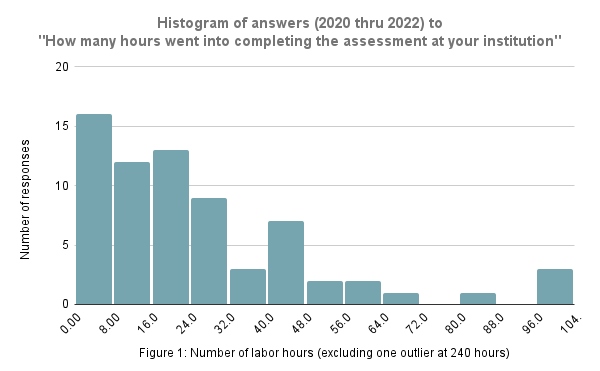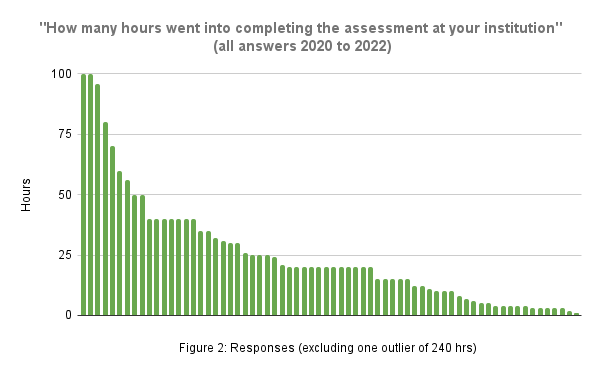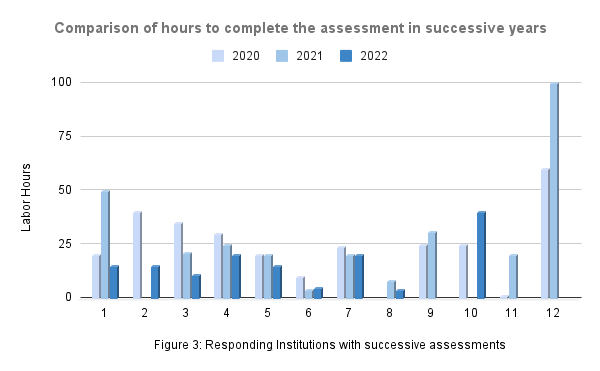We are often asked by community members how long it typically takes an institution to complete an assessment of their RCD support using the RCD Capabilities Model. When teams submit an assessment, we ask them about this, and so we decided to go through that data and share what we found (although we note that not all institutions provided an answer). As you might imagine, there is quite a bit of variation.
Figure 1 shows how most institutions group, with many taking less than a few person-days, but some taking quite a bit more. For the sake of presentation, we have filtered one institution that reported a team of 12 people spent 20 hours together (240 hours!).

Another view of this shows the individual responses in decreasing time spent (again, filtering the one outlier):

A related question that comes up is: “Does it take more time or less time to complete an assessment a second time?” We only have data on this from a dozen institutions, but we see two patterns that reflect stories we have heard from different participating institutions:
- Some teams dive in the first year, and then treat successive assessments as updates, allowing them to move through the Capabilities Model more quickly.
- Other teams take a more cursory view the first time and then do a more thorough analysis when they repeat their assessment in a later year.
Figure 3 below shows the data for institutions that reported their time investment for successive assessments. Some completed assessments in all three years, and others just did two assessments. The first eight institutions generally follow the first pattern with decreasing work needed over time and the last four follow the second pattern of increased labor the second time through. Institution 1 seems to do both, increasing substantially from 2020 to 2021, and then decreasing from 2021 to 2022.

In general, the time it will take your institution depends in part upon your organizational model:
- If your institution has a fairly simple or centralized organizational model, you may be able to assemble a small team and answer the questions in short order.
- If your institution has a distributed or federated model of service support, it may require a bit more discussion to pull together the appropriate groups, and develop a shared mental model of how those groups work together to support research.
A second factor in the time required relates to how you are using the RCD Capabilities Model as part of your strategic planning:
- If your goal is a simple information gathering exercise, it may be sufficient for an RCD team lead to do a relatively quick pass through the RCD Capabilities Model, and just ask a few questions of others (or just use estimates/educated guesses) for specific questions.
- If you are using the tool as part of a broader RCD strategic planning process, you may draw together expertise from a range of groups (e.g., including HPC systems folks, Data Librarians, Information Security analysts, and others), and use the RCD Capabilities Model questions as a starting point for more in-depth discussions of service models and how teams collaborate to support research.
Your goals may fit somewhere between these two examples. Naturally, the second approach can take quite a bit more time, but many institutions report that they got considerable value from these longer discussions, as different teams learned more about what their partners were providing and how they might better collaborate.
In the end, you can decide how long it takes to complete an RCD Capabilities Model assessment, and in general, you will get as much out of the assessment as you put into it!
